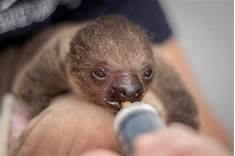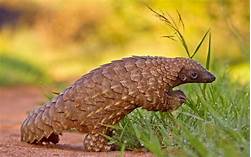Can Sloths Be Pets?
Sloths are fascinating creatures that have captured the attention of many people worldwide. With their slow-moving habits and adorable appearance, it's no wonder why some consider keeping them as pets. However, before making this decision, it's crucial to understand the unique needs and challenges of owning a sloth. In this article, we'll explore whether sloths can be pets and the implications of keeping them in captivity.

The Appeal of Sloths as Pets
1. Unique Appearance and Behavior: Sloths have a distinct appearance with their shaggy fur, long limbs, and slow movements. Their laid-back demeanor and tendency to hang upside down make them captivating to observe.
2. Low-Maintenance Perception: Compared to other pets, sloths are often perceived as low-maintenance animals. They spend most of their time sleeping and moving slowly, which may seem like an ideal pet for busy individuals.
Challenges of Keeping Sloths as Pets
1. Specialized Diet: Sloths have a specialized diet consisting mainly of leaves, fruits, and buds. This unique diet can be challenging to provide in captivity, as it requires fresh, high-quality vegetation daily.
2. Habitat Requirements: Sloths require a spacious enclosure that mimics their natural habitat. This includes providing ample space for climbing, hanging, and sleeping. Creating such an environment can be complex and expensive.
3. Behavioral Issues: Sloths are wild animals and may exhibit unpredictable behaviors. They can become stressed or aggressive if they feel threatened or their needs aren't met. This can pose a safety concern for both the sloth and its owner.
4. Health Concerns: Sloths are prone to various health issues in captivity, including respiratory problems, digestive issues, and dental problems. These health concerns require specialized veterinary care, which can be costly and challenging to access.
Legal and Ethical Considerations
1. Legal Restrictions: In many countries, keeping sloths as pets is prohibited or strictly regulated due to concerns about their welfare and the potential impact on wild populations.
2. Conservation Concerns: Sloths play a crucial role in maintaining the health of their natural ecosystems. Removing them from the wild for the pet trade can disrupt these ecosystems and contribute to the decline of wild sloth populations.
Conclusion
While sloths may seem like captivating and low-maintenance pets, the challenges and ethical considerations associated with keeping them in captivity far outweigh any perceived benefits. Sloths are wild animals that belong in their natural habitats. Keeping them as pets can compromise their welfare, contribute to the decline of wild populations, and undermine conservation efforts. Choosing to appreciate sloths from a distance, through responsible wildlife tourism or educational programs, is the best way to respect these amazing creatures and protect their well-being.
Declaration: All article resources on this website, unless otherwise specified or labeled, are collected from online resources. If the content on this website infringes on the legitimate rights and interests of the original author, you can contact this website to delete it.





